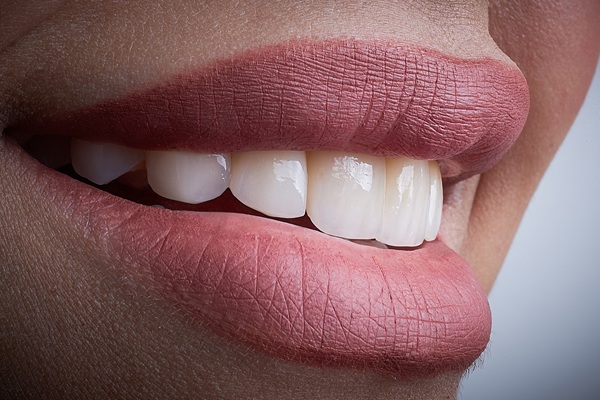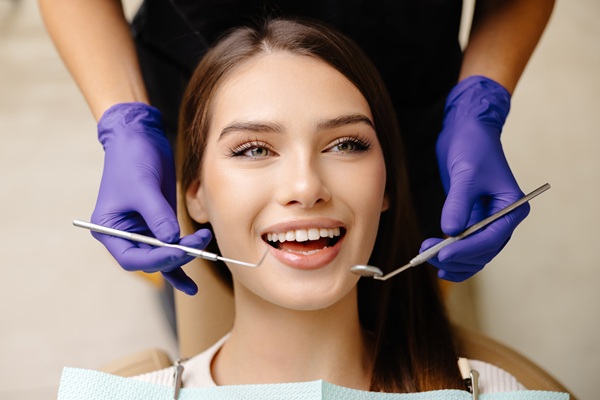Professional Teeth Whitening vs Over the Counter Teeth Whitening

Considering the difference between over the counter teeth whitening and professional whitening? If so, it can be easy to feel a bit overwhelmed about which is the better option. Before settling for store-bought teeth whitening, it is important to understand that it is not the same quality as professional teeth whitening. Let us discuss the pros and cons of each type of teeth whitening, so you can make the most informed decision about your smile.
Check labels of over the counter teething whitening
Before grabbing an over the counter teeth whitening system, make sure to check out the label. Why is this important? Just because a product claims to be “whitening” does not necessarily mean it has an active whitening agent. All professional teeth whitening treatments contain a bleaching agent such as hydrogen peroxide or carbamide peroxide. Many over the counter whitening systems may simply be designed to clear away food and other debris without necessarily removing stains. Ultimately, teeth will remain the same color. While considering an over the counter teeth whitening treatment, make sure to check the label for the active ingredient.
Understanding quality of over the counter teeth whitening
Even if an over the counter teeth whitening system includes a bleaching agent, it does not necessarily mean that it’s high-quality. As a general rule, professional-grade teeth whitening has clinical-strength bleaching agents that produce better results that last longer. It has the ability to remove difficult stains and discoloration, whereas store-bought teeth whitening may not. Patients will get results faster and keep them longer with professional-grade products.
Options for customization
Over the counter teeth whitening is designed to be used by the general public. This means that there is no ability to customize the whitening trays for the perfect fit. Not only does an improper fit mean that some areas may be missed, but it also increases the risk of gum irritation or tooth sensitivity. Professional teeth whitening allows trays to be customized for each patient to secure fit and a better whitening result.
Results in real time
The time commitment for teeth whitening is another thing to consider. Over the counter teeth whitening usually requires at least 30 minutes of treatment over the course of several weeks before any type of result is seen. In comparison, professional teeth whitening can produce results in a single 45-minute session with up to eight shades whiter.
Rely on professional expertise
One of the biggest differences between professional teeth whitening and store-bought teeth whitening treatments comes down to professional oversight. When purchasing an over the counter teeth whitening system, there is no guidance. In comparison, choosing professional teeth whitening patients have access to the knowledge and skillset of a trained professional who can help them safely achieve the desired results.
Schedule an in-office teeth whitening session
It may be tempting to purchase an over the counter teeth whitening system, but it is important to know that there are better quality options out there. Patients deserve to look and feel their best with a whiter and brighter smile!
Request an appointment here: https://alamedadentalaurora.com or call Alameda Dental at (303) 343-7072 for an appointment in our Aurora office.
Check out what others are saying about our dental services on Yelp: Teeth Whitening in Aurora, CO.
Recent Posts
It is normal for teeth to yellow or become stained over time, but teeth whitening can return a smile to its original brightness. The American Association of Orthodontics reports that more than 30% of Americans are unhappy with their smile. Getting teeth whitened is a simple, easy process that can help anyone regain confidence in…
Minor chips, cracks, and gaps in the smile do not have to be permanent. Dental bonding is a quick yet durable way to repair teeth with these cosmetic imperfections. With natural-looking results and minimal preparation, bonding can support oral health and restore the smile to its prior radiance.Dental bonding is a cosmetic procedure in which…
Patients often ask about TMJ treatment options when jaw pain, clicking, or headaches disrupt everyday life. The temporomandibular joint (TMJ) links the lower jaw to the skull and powers chewing, speech, and yawning. When the joint or the surrounding muscles become overworked or inflamed, symptoms can include jaw stiffness, ear fullness, limited opening, and facial…
Finding a kid-friendly dentist can transform dental care from a stressful task into a positive experience for young patients. This dental professional creates a warm, welcoming environment, making routine visits and cleanings enjoyable while teaching strong oral hygiene habits. Establishing a trusted relationship with a dental provider in a person's early life can lead to…


